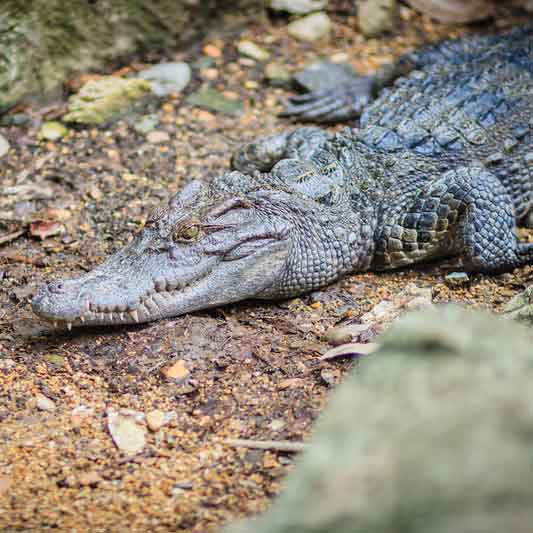Authorities confirmed that a 10-year-old Indonesian boy was killed by a crocodile in Riau province on Wednesday, March 26. The boy was playing with friends on a makeshift canoe in a river when the incident occurred.
Fikri Qurniawansyah was on a blue barrel converted into a small canoe with friends when the crocodile attacked. Witnesses reported that Fikri had placed his hand in the water just before the predator struck.
According to friends who were with the boy, the crocodile bit his arm, causing him to scream. The reptile then pulled him from the makeshift vessel, despite his companions’ attempts to save him.
The friends briefly held onto Fikri’s other arm in an effort to rescue him, but the crocodile’s grip was too strong. The vessel overturned, allowing the crocodile to escape with the boy.
After the attack, Fikri’s friends returned to their village to inform adults and authorities. Rescue teams immediately started a search for the missing child.
During the search, a crocodile suspected to be responsible for the attack was found and killed. However, examination of the crocodile’s stomach contents revealed no evidence of the boy.
Fikri’s body was found on Tuesday by Muhammad Nurdin, a 37-year-old local farmer, who saw the body floating face-down in the river. Nurdin alerted the police, who sent a boat to recover the remains.
A medical examination revealed multiple bruises consistent with a “death roll,” a technique used by crocodiles to subdue prey. Authorities confirmed the boy’s identity and released his body to his family for burial.
Following the incident, the police chief warned residents of the dangers in local waterways. “If there are any signs of crocodile sightings, please report them to the authorities immediately so that necessary actions can be taken,” the police chief emphasized.
The Indonesian archipelago hosts 14 crocodile species, including large and aggressive estuarine crocodiles. These reptiles thrive in the local climate and are known for territorial behavior.
Wildlife experts attribute the increasing human-crocodile conflicts to factors like overfishing, which has reduced the predators’ natural food sources, compelling them to seek alternatives.
Additionally, rapid development of coastal areas into agricultural land has encroached on crocodile habitats, pushing them inland and closer to human settlements. Tin mining operations have further displaced communities into areas frequented by crocodiles.
Environmental researchers note that habitat loss from overfishing and agricultural expansion has forced crocodiles closer to human settlements, reducing their food sources and available habitat.
Conservation authorities are working with communities to implement safety measures and educational programs to prevent future attacks. These include installing warning signs, establishing safe swimming areas, and training residents in crocodile safety.
The event involving Fikri is part of a concerning trend noted by wildlife officials throughout Indonesia, where similar attacks have been documented in other provinces, highlighting the challenges of human-wildlife conflict amid rapid development and biodiversity.

